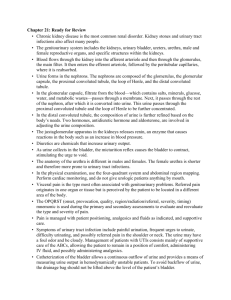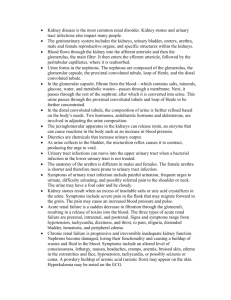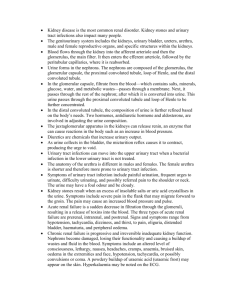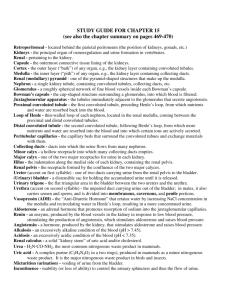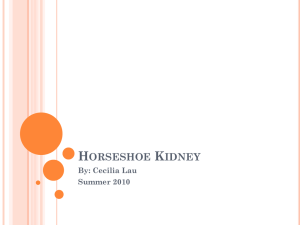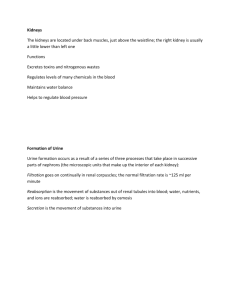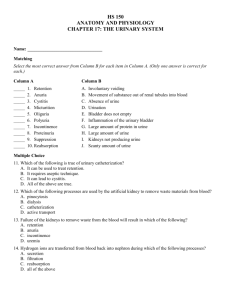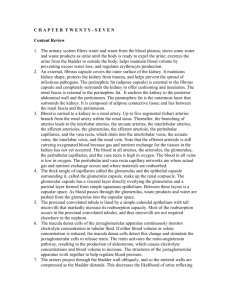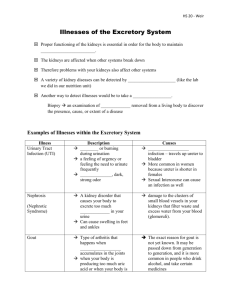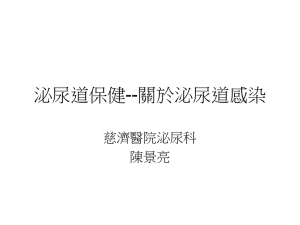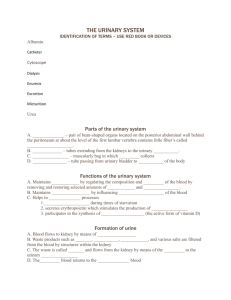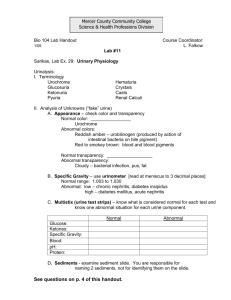Urinary System Study Guide: Anatomy, Definitions, Diseases
advertisement
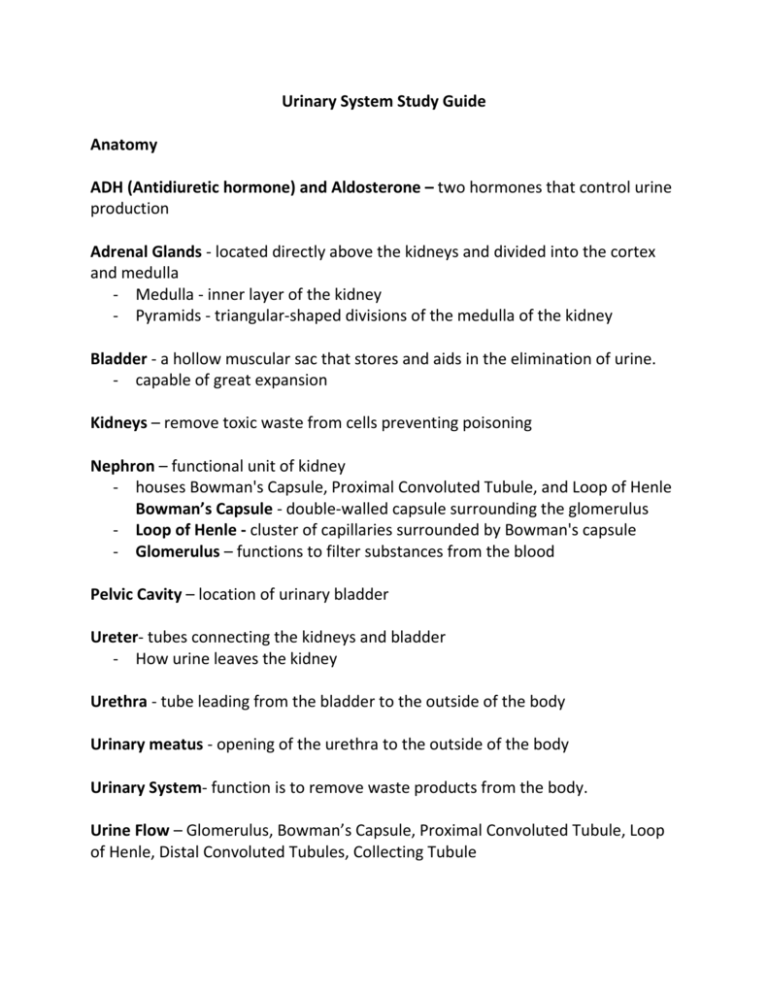
Urinary System Study Guide Anatomy ADH (Antidiuretic hormone) and Aldosterone – two hormones that control urine production Adrenal Glands - located directly above the kidneys and divided into the cortex and medulla - Medulla - inner layer of the kidney - Pyramids - triangular-shaped divisions of the medulla of the kidney Bladder - a hollow muscular sac that stores and aids in the elimination of urine. - capable of great expansion Kidneys – remove toxic waste from cells preventing poisoning Nephron – functional unit of kidney - houses Bowman's Capsule, Proximal Convoluted Tubule, and Loop of Henle Bowman’s Capsule - double-walled capsule surrounding the glomerulus - Loop of Henle - cluster of capillaries surrounded by Bowman's capsule - Glomerulus – functions to filter substances from the blood Pelvic Cavity – location of urinary bladder Ureter- tubes connecting the kidneys and bladder - How urine leaves the kidney Urethra - tube leading from the bladder to the outside of the body Urinary meatus - opening of the urethra to the outside of the body Urinary System- function is to remove waste products from the body. Urine Flow – Glomerulus, Bowman’s Capsule, Proximal Convoluted Tubule, Loop of Henle, Distal Convoluted Tubules, Collecting Tubule Definitions Dehydration – loss of body fluids. S/s is dark amber-colored urine and voiding very small amounts. E-Coli – can cause dysuria, urinary frequency and lower abdominal discomfort from improper hygiene Filtration – removes waste and excess water. Beginning of urine formation Pyuria – pus in urine Reabsorption – During urine formation useful substances filter out of the renal tubules and back into the capillaries around the tubules - the proximal convoluted tubules are responsible for correcting the water imbalance during dehydration - affects the release of ADH Secretion – process of urinary function where excessive substances in urinary filtrate, such as sodium and potassium, lead to their elimination Renin – diuretic BP med causes increase urinary frequency Diseases/Conditions Anuria – absence of urine treated with Hemodialysis Acute Renal failure – temporary loss of kidney function - Oliguria – below normal amounts of urination. Early sign of acute renal failure Chronic Renal Failure - gradual loss of nephron function Cystitis - Inflammation of the bladder commonly caused by E-coli bacteria E-Coli – can cause dysuria, urinary frequency and lower abdominal discomfort from improper hygiene Dysuria – painful voiding. Enuresis – bedwetting common in small children Hematuria – RBC are present in urine result of ineffective Filtration - eg. kidney trauma Hemodialysis - treatment for kidney failure. - blood passes through a semipermeable membrane to rid the body of wastes. - Replaces kidney filtration function Incontinence - unintentional wetting of pants Kidney Transplant – BEST treatment for renal failure - main complication is rejection Lithotripsy – uses shockwaves to break up renal calculi. Nephritis –Inflammation of the kidney tissue and renal pelvis causes pyuria (pus) Polyuria – excessive urination from drinking lots of fluids Renal Calculi – aka kidney stones - s/s severe flank pain, chills, hematuria - large stones block the ureter
